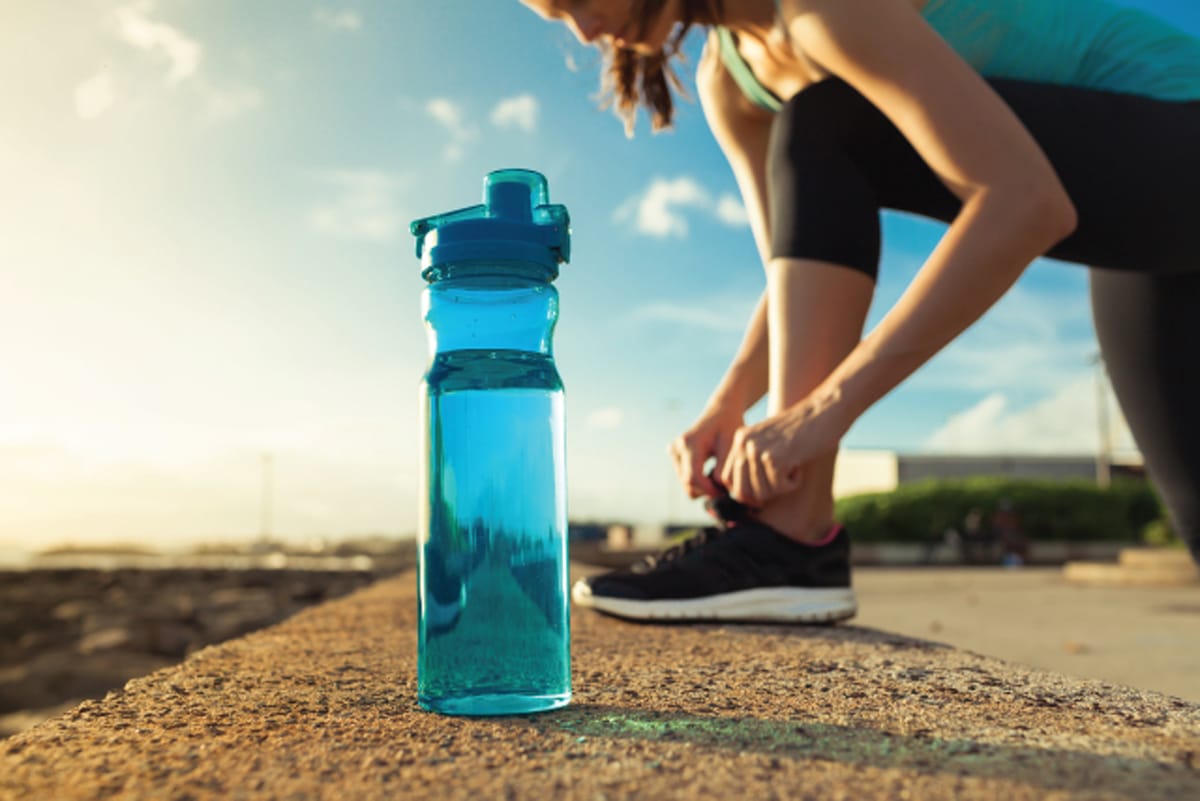What happens when the body is dehydrated?

Dehydration occurs when your body uses or loses more fluid than you take in. When this happens, your body doesn’t have the amount of water and other fluids it needs to carry out its normal functions.
Find out about the symptoms and main causes of dehydration, as well as the complications that can result from severe dehydration, below.
Symptoms of Dehydration
Contrary to what many people believe, thirst isn’t always a reliable early indicator of the body’s need for water. Many people don’t feel thirsty until they’re already dehydrated, highlighting the importance of committing to a daily habit of drinking enough water.
The signs and symptoms of dehydration usually differ by age and may include:
For Infants and Young Children:
- Dry mouth
- No tears when crying
- No wet diapers for three hours
- Sunken eyes and cheeks
- Severely lethargic
For Adults:
- Extreme thirst
- Less frequent urination
- Dark-colored urine
- Fatigue
- Dizziness
- Confusion
Causes of Dehydration
Sometimes dehydration can result simply from not drinking enough water. Other causes of dehydration can include:
- Vomiting and Diarrhea – Diarrhea that comes on suddenly and violently is especially dangerous, as it can cause a significant loss of water and electrolytes in a short period of time. Start drinking extra water or an oral rehydration solution at the first signs of illness.
- Fever – Usually, the higher the fever, the more dehydrated you may become. Do your best to keep the fever down and drink extra water while you have a fever to prevent getting dehydrated.
- Excessive Sweating – If you do vigorous activity and don’t replace the fluids lost, dehydration can occur.
- Weather – Hot, humid weather increases the amount you sweat and the amount of fluid you lose, so you’ll need to ensure you increase your fluid intake. You may also need extra water in cold weather to combat moisture loss from dry air, especially at higher altitudes.
Complications Resulting from Dehydration
Dehydration can lead to many issues, from headaches and inability to concentrate to more serious complications that may include the following:
- Heat Injury – Not replenishing fluids lost during vigorous exercise or after perspiring heavily can lead to heat injuries such as mild heat cramps, heat exhaustion or life-threatening heatstroke.
- Urinary and Kidney Issues – Chronic dehydration can cause urinary tract infections, kidney stones and may even lead to kidney failure.
- Low Blood Volume Shock (Hypovolemic Shock) – This potentially life-threatening complication results when a low blood volume causes a decrease in blood pressure and a drop in the amount of oxygen in your body.
The bottom line is that staying hydrated can help prevent a lot of health issues and help your body to function at its best every day. And when your body is doing its part, you’re equipped to do yours at home, at work, and in the world.
